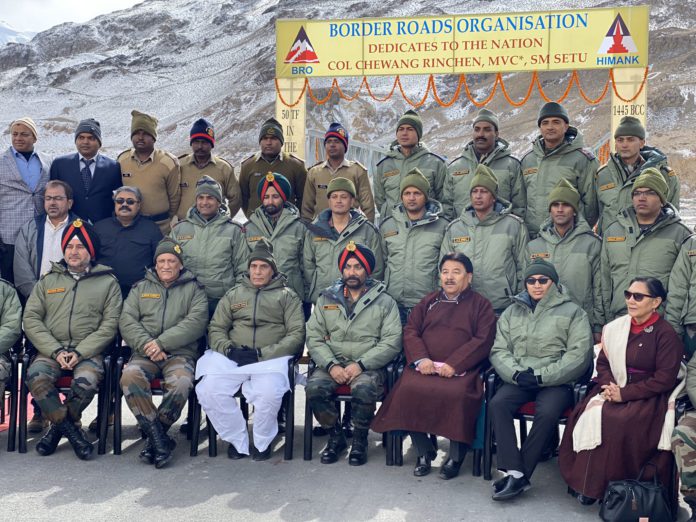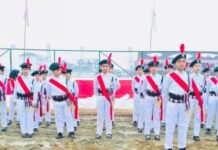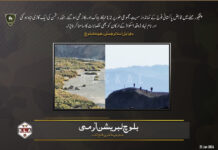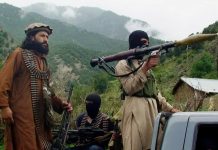Leh (Ladakh) (NVI): India on October 21 announced that the Siachen Glacier area will be open for tourists now, about 35 years after the world’s highest battlefield located in Ladakh was closed for civilians.
Defence Minister Rajnath Singh made the announcement during his visit to Ladakh for inaugurating a strategic bridge on Shyok River.
Significantly, the move to allow tourism in Siachen comes about one-and-a-half months after the central government carved out Ladakh as a Union Territory from Jammu and Kashmir state.
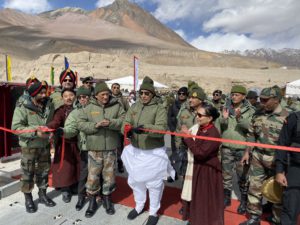
“The Siachen area is now open for tourists and tourism. From Siachen Base Camp to Kumar Post, the entire area has been opened for tourism purposes,” Singh tweeted.
“Ladakh has tremendous potential in tourism. Better connectivity in Ladakh would certainly bring tourists in large numbers,” the tweet said.
The Siachen Glacier area in the Karakoram mountains used to be a non-militarised zone till 1984, before India rushed its Army to the region under ‘Operation Meghdoot’ to pre-empt a bid by Pakistan to deploy its armed forces there.

Prior to the ‘Operation Meghdoot’, India used to allow mountaineering expeditions to the region where the border is not properly defined under the Karachi Agreement of 1949.
However, Pakistan too started sending tourist expeditions to the glacier in early 1980s, which was seen as a garb to send its forces to capture the region, which could hurt India’s strategic interests.
Ever since the ‘Operation Meghdoot’, India has been controlling the strategic heights in the icy mountains even though Pakistan has been desperately trying to capture these.
The region, which is highly inhospitable because of extreme cold conditions, has seen several skirmishes between the Indian and Pakistani troops, often involving use of high caliber weapons.
In 2005, when the then Prime Minister Manmohan Singh visited Siachen, he had pitched for converting Siachen into a “mountain of peace”.
The two countries have held several rounds of talks to resolve the Siachen matter, which was one of the eight outstanding issues identified under the Composite Dialogue.
The talks saw much progress and the two countries were close to demilitarizing the region in 2008 but an agreement could not be reached as Pakistan refused to authenticate the present deployment of the two armies there.

